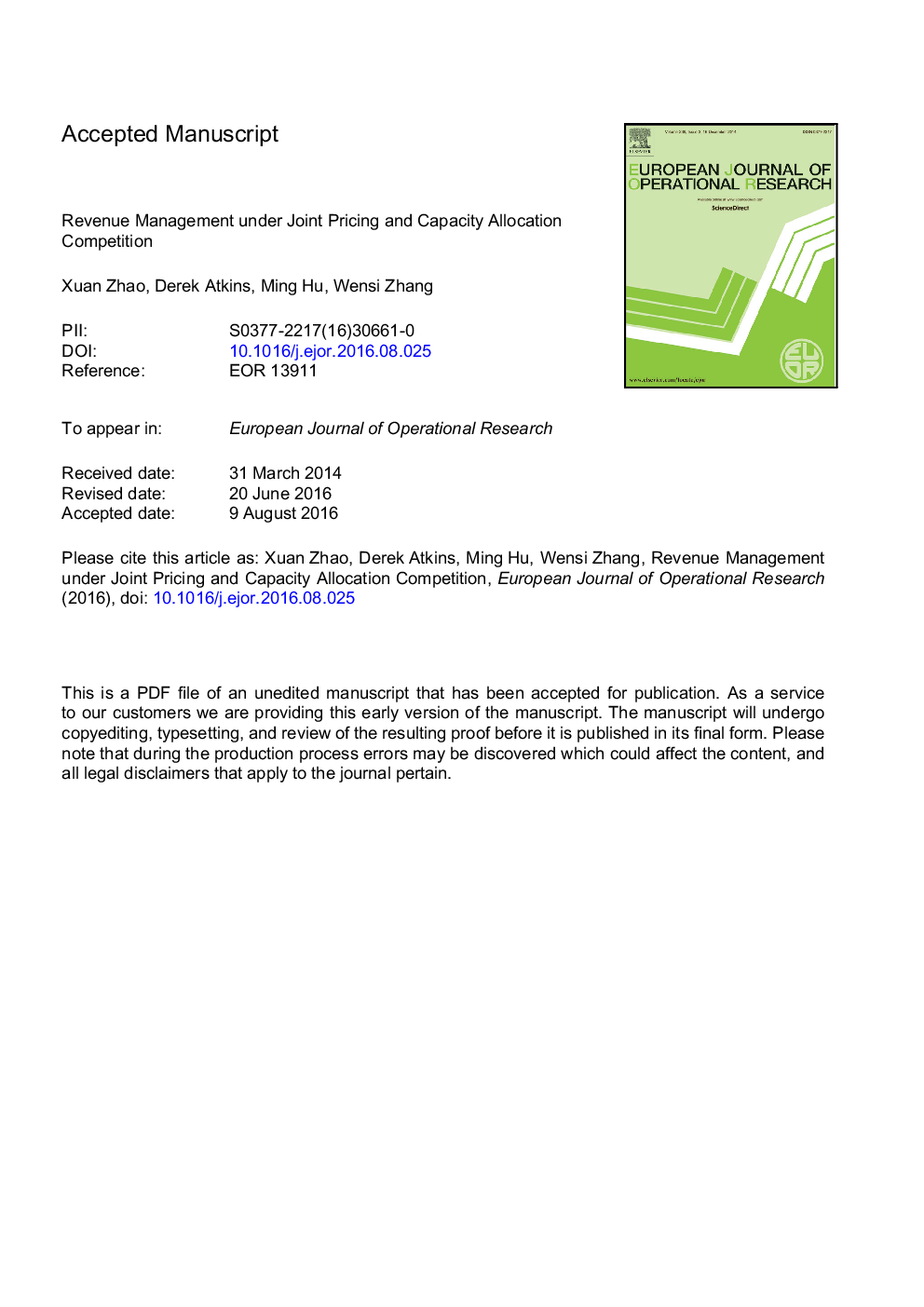| Article ID | Journal | Published Year | Pages | File Type |
|---|---|---|---|---|
| 4960040 | European Journal of Operational Research | 2017 | 36 Pages |
Abstract
We investigate joint pricing and capacity allocation decisions of a duopoly, each of which competes in selling a fixed amount of substitutable perishable goods in both early discount and regular full-fare markets with demand uncertainty. Upon a firm's stockout, unsatisfied demand spillovers to the competitor, depending on the substitutability of products offered by the two firms. We first show that there exists a pure-strategy Nash equilibrium. For identical firms, there exists a unique
pure-strategy Nash equilibrium that is symmetric. Then we study how firms' pricing and capacity allocation decisions depend on operational and market conditions. In particular, we show that more cut-throat competition in the full-fare market never leads to a rise in the price and a fall in the protection level simultaneously in the full-fare market. We demonstrate a similar result of comparative statics for the competition intensity in the discount market. In comparison with a monopolist's optimal decision, a duopoly equilibrium never results in a situation that definitely benefits the full-fare consumers in both dimensions of price and availability. Finally, we examine how the adoption of early discount, as practiced in the airline industry, may benefit competing firms. When one of the two firms first introduces early discount sales, we find that there is a “free-ride” effect for the other firm. Interestingly, the “free-rider” can benefit more than the adopter, especially with stronger competition.
Related Topics
Physical Sciences and Engineering
Computer Science
Computer Science (General)
Authors
Xuan Zhao, Derek Atkins, Ming Hu, Wensi Zhang,
